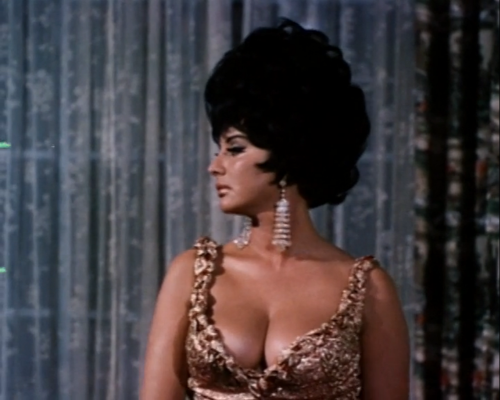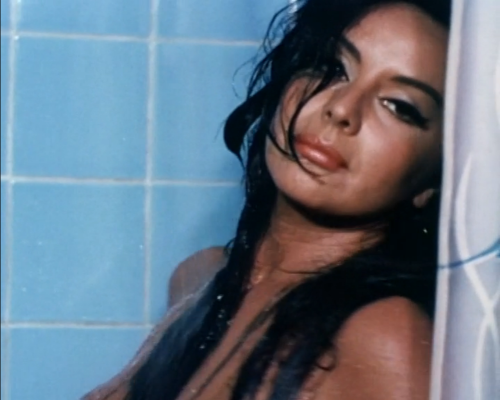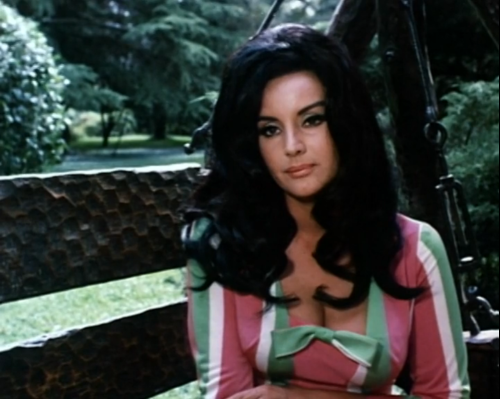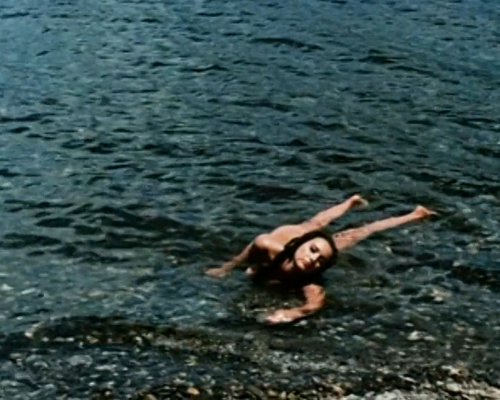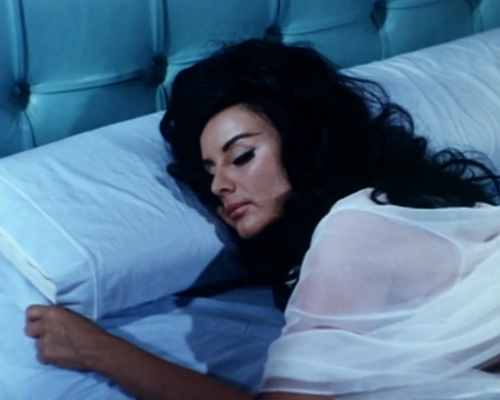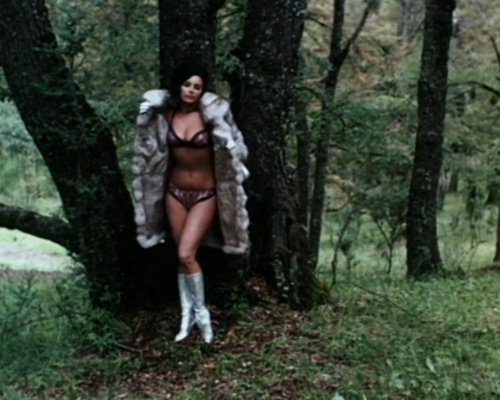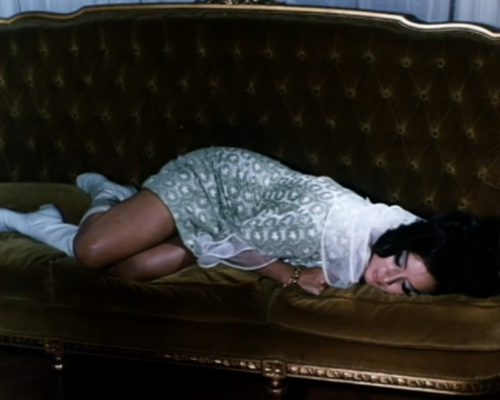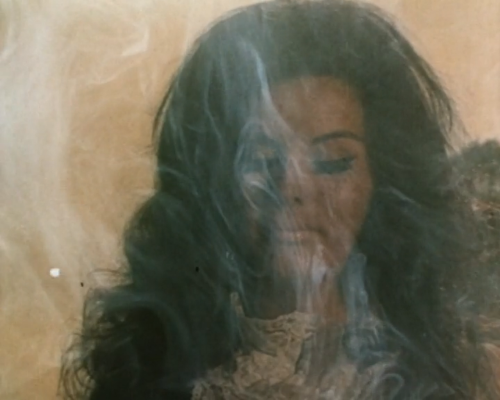giallolooks:Isabel Sarli in Fuego (1969, Armando Bó)Isabel Sarli is little known outside of her nati
giallolooks:Isabel Sarli in Fuego (1969, Armando Bó)Isabel Sarli is little known outside of her native Argentina, but from the late 1950s to the 1970s she was a huge sexploitation starlet. I find her films really interesting because they were all the personal projects of herself and Armando Bó, a 1940s pretty boy matinée idol later turned director who “discovered” Sarli in 1958. Their first film together was released that year and Sarli’s full frontal nude scene (the first of its kind in Argentine cinema) caused a scandal. They went on to make films exclusively together for over 20 years, until Bo’s death in 1981, after which Sarli retired. Fuego was a fascinating experience because it was apparent to me throughout the film just how personal of a creation it was–it’s all about Sarli, whether swimming nude or slinking around glamorous gowns, the camera (and every character) adores her. It brings to mind the relationship between Josef von Sternberg and Marlene Dietrich, though their films were made on a much larger scale and because of that are less intimate than the Bó/Sarli films, which are even uncomfortably so. And Fuego at least is pure sexploitation all the way–an OTT erotic melodrama that never misses a chance to show off Sarli’s voluptuous body. But equal attention is paid to her face, which is contorted into expressions of hysteria and despair as often as it is in sexual desire; maybe even more so. Without spoiling the plot (in case any of you want to watch), at its core Fuego is about how bodily, sexual hunger (in particular WOMEN’S sexual hunger) can destroy an emotional bond. It’s an interpretation of the old story of straying husbands who can never resist playing around and have a long-suffering wife waiting for them at home, but in a gender role reversal, Sarli is the playgirl wife and Bó is the weeping husband. It was disturbing yet mesmerizing to watch this fantasy of male suffering play out, as Bó’s character wailed and beat himself onscreen for loving a woman who will never be able to be faithful. But, as mentioned before, Sarli does a large part of the emoting herself and one of the main narrative points is that she doesn’t really WANT to sleep with other men and women, she does it because it’s a sickness inside of her. The movie doesn’t end happily, but there was a last emphasis on the spiritual and supernatural and a message of love transcending the body (which is a pretty strange message for a sexploitation film)!After watching, I wondered about how the dynamic of relationship of Sarli and Bó had been in real life. Was she really an insatiable cheating nympho and he a sad, cuckolded but still loving partner? Though I haven’t been able to find many details about their life together, I doubt it. I can just imagine Bó thinking up the story for Fuego and writing the script and thinking a lot of himself for creating this story of a woman having so much power over a man (and men in general, as well as one sad, hapless lesbian) when in reality, the opposite is the case. As her discoverer, her mentor, the man who groomed her and had her star exclusively in his films, Bó seemed to have all but a collar and leash on Sarli. And as mentioned they never parted, onscreen or off, till his death. -- source link
Tumblr Blog : giallolooks.tumblr.com
#isabel sarli#fuego#she!!
